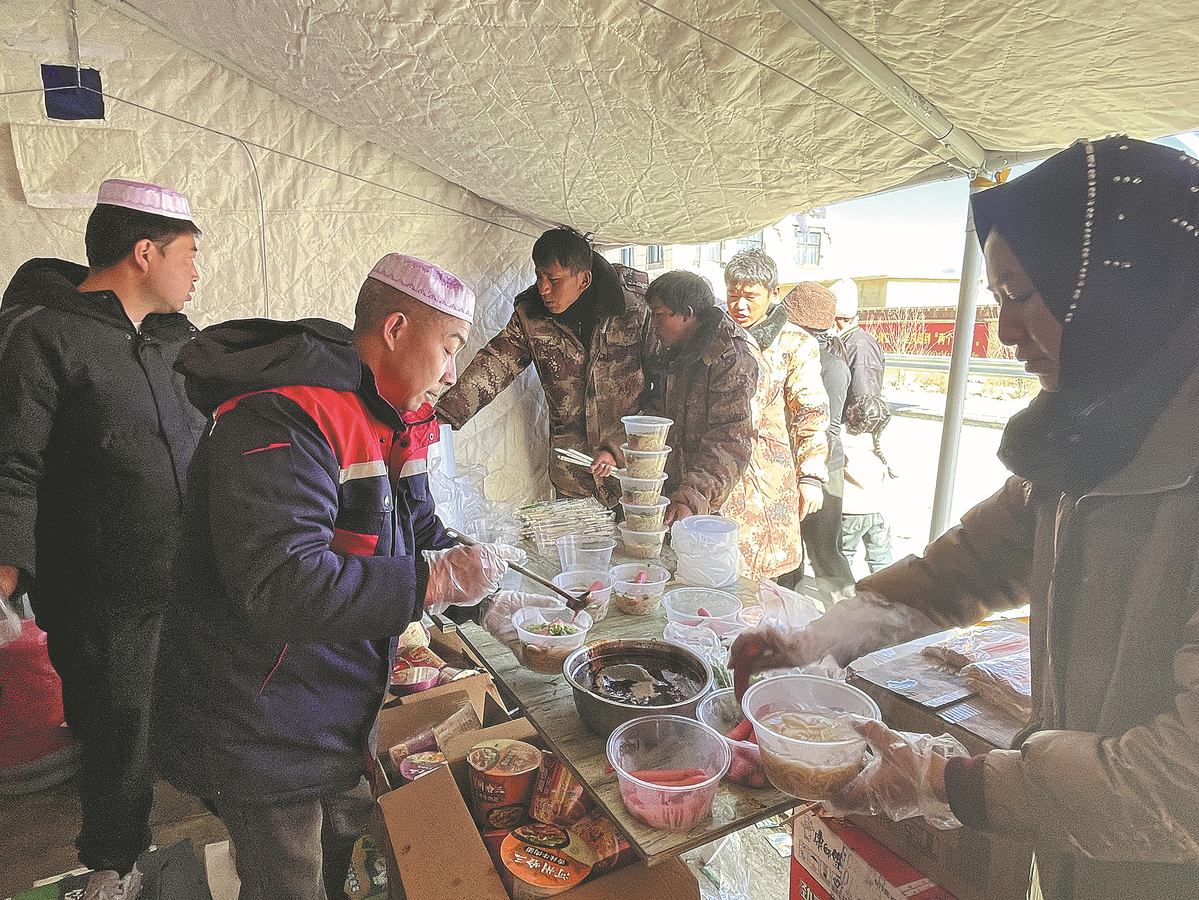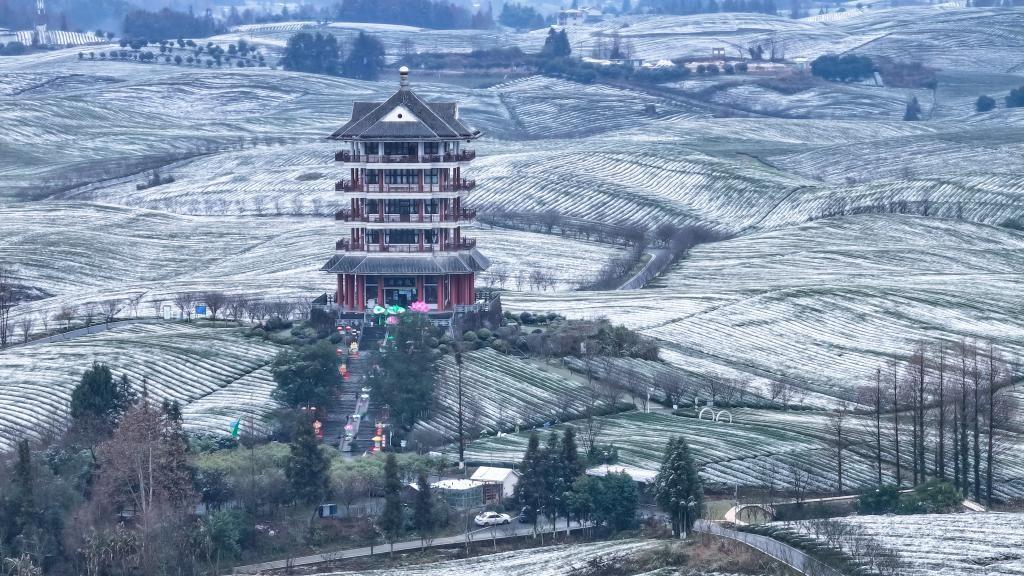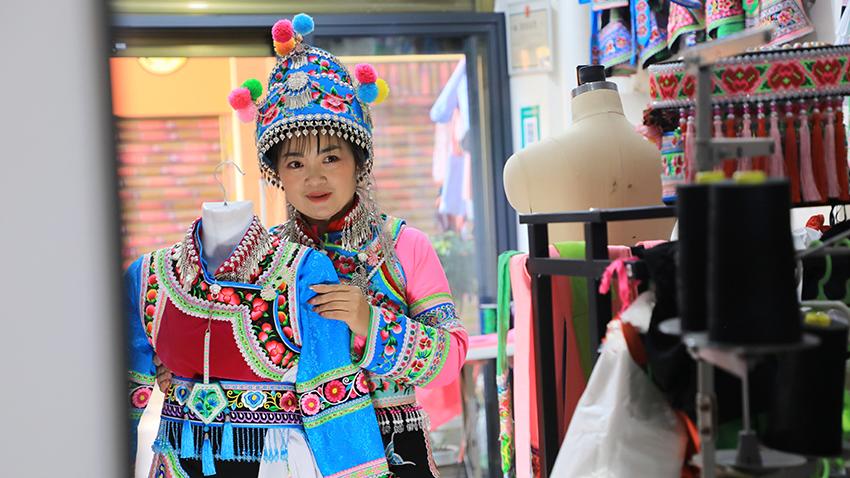Shopkeeper, medics aid quake victims

Quake-stricken people line up to receive free noodles in Tsogo township, Dingri county, Xizang autonomous region, on Friday. Dingri experienced a 6.8-magnitude earthquake on Tuesday morning, the strongest temblor in the past five years in Xizang. (Daqiong/China Daily)
Ma Xiaohu's hand-pulled noodle — or lamian— restaurant in Lhaze county, Shigatse, Xizang autonomous region, shook violently after a 6.8-magnitude earthquake hit Dingri county, the epicenter, about 88 kilometers away on Tuesday morning.
Ma packed his stoves, pots, flour, seasoning, thin noodles, and bottled water and drove to the epicenter, believing that people in the earthquake-stricken area may need someone to cook for them.
Ma's hometown, Linxia Hui autonomous prefecture in Gansu province, experienced a 6.2-magnitude earthquake on Dec 18, 2023. "We received kindness from all over the country that time, so I also want to offer help to people facing the same difficulty," he said.
Ma and his colleagues arrived at 5 pm on Tuesday in Tsogo township, Dingri. "We wanted to cook lamian, but it's too cold to pull the flour dough, so we boiled water and made instant noodles," he said.
The night temperatures were about minus 18 C. Without shelter, they were very cold, but "seeing the victims enjoy hot soup, I felt happy", he said, adding that the town government provided them with a tent on Wednesday afternoon.
On Wednesday, Ma said they cooked dumplings for about 8,000 people. On the third and fourth days, they offered thin noodles. The stall was open 24 hours a day, free of charge for villagers, rescue teams, and whoever was in need.
Though there were frequent aftershocks, Ma said he didn't have time to worry about them, as a lot of hungry people waited in long lines for food. "Although we are of different ethnic groups and religions, we are all Chinese. We need to unite to get through this," he said.
Ma also received donations such as cotton quilts from a charity organization, but he gave them to children greatly in need of them. He said they would stay there for another four to five days until the victims can cook hot meals by themselves.
The town suffered 14 fatalities during the disaster, with 845 homes collapsing. By Friday, 4,472 people lived in tents at 38 relocation sites, data from local authorities showed.
Next to the tents, some households set fires to cook using stoves, cow dung, and vegetables sent by the government.
The earthquake, the most severe in the area in the past five years, claimed 126 lives and injured 337 as of Thursday. About 47,500 people are living at 224 resettlement sites after more than 3,600 houses collapsed, local officials said.
The priority was to improve living conditions in the temporary shelters so that residents could "live a safe and warm winter", Hao Tao, deputy director of the Xizang Emergency Management Department, said at a news conference on Thursday.
At the resettlement camps, residents who lost their homes moved into tents, with heating equipment, winter clothing, hot meals, water, power, and network signals offered.
Medics, volunteers, social workers, and people from different industries came to the disaster-stricken area to help out those affected.
Nyikyi arrived at Dingri at 10 pm on Wednesday. Upon arrival, she distributed 40 cotton quilts to patients and their families at the county hospital. The following morning, she visited all three townships affected most, donating necessities door to door. She heard requests from the victims and bought them goods such as kitchenware, bowls, kettles, and cotton trousers.
"Their houses collapsed and many necessities were buried, so I bought things they need," she said.
Photos
 Snow scenery of Shanwangping Karst national ecological park in Chongqing
Snow scenery of Shanwangping Karst national ecological park in Chongqing Anxi in SE China's Fujian develops rattan iron crafts into industrial chain worth over 10 bln yuan
Anxi in SE China's Fujian develops rattan iron crafts into industrial chain worth over 10 bln yuan Scenery of snow-covered tea plantations in Zunyi, China's Guizhou
Scenery of snow-covered tea plantations in Zunyi, China's Guizhou Woman revitalizes intangible cultural heritage items with a stylish twist
Woman revitalizes intangible cultural heritage items with a stylish twist
Related Stories
- Restoring smiles, rebuilding hope in helping children after Xizang quake
- Village residents in quake-hit Xizang get disaster relief materials
- Financial services restored in quake-hit areas in Xizang
- Psychological support offered to quake-hit people in Xizang
- 'I never expected the rescue teams to arrive so quickly': Monks and nuns in Xizang earthquake-stricken areas share rescue experiences
Copyright © 2025 People's Daily Online. All Rights Reserved.





